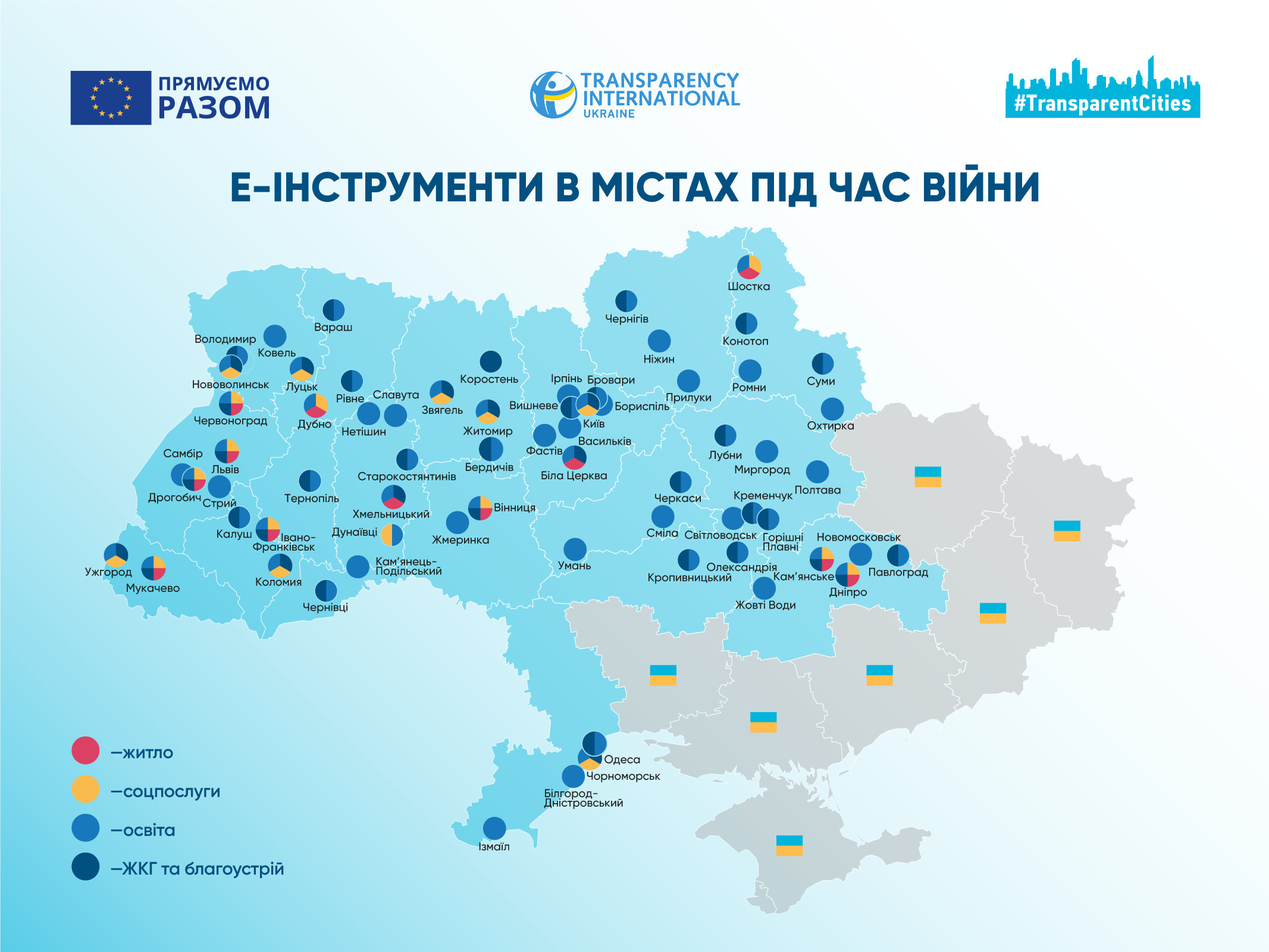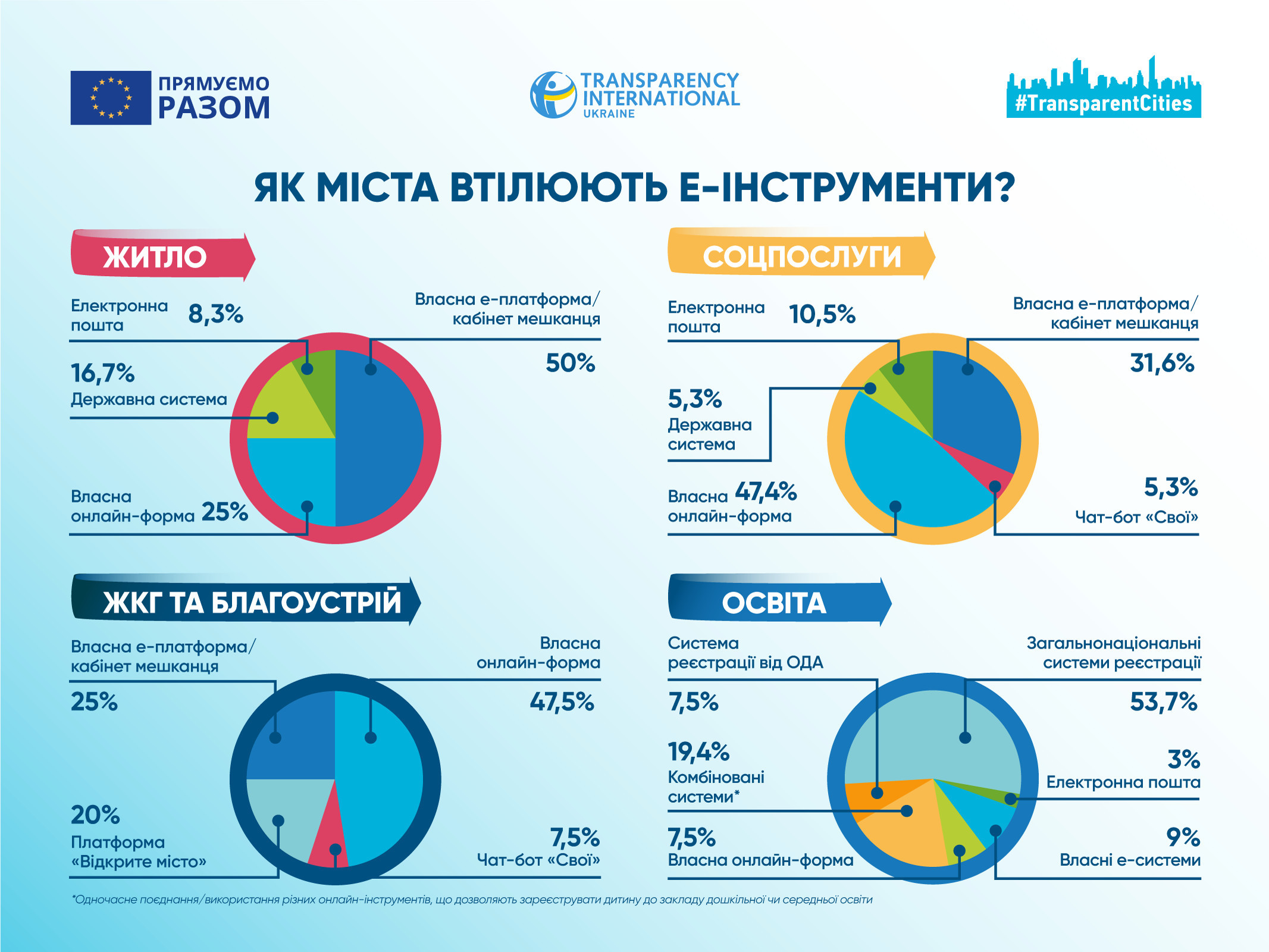The Transparent Cities program of Transparency International Ukraine studied the electronic services of Ukrainian cities in the field of housing, social services, education, housing and municipal services, and urban improvement.
Only 8 cities out of the 70 studied have e-services from all the above areas. They are: Vinnytsia, Kamianske, Dnipro, Mukachevo, Drohobych, Lviv, Chervonohrad, and Ivano-Frankivsk. All of them are marked on the map, so you can easily find the services of your city.

- 12 cities provided the possibility of electronic registration of housing applications;
- 19 cities have e-services or e-tools related to social services;
- 32 cities organized the submission of online applications for enrollment in a school or a preschool education institution;
- 35 cities provide remote registration in schools or kindergartens;
- 40 city councils provide a platform or a tool for responding to complaints.
Learn more about how cities implement e-governance tools in an infographic with charts by sphere. The data considered are based on the adapted study of the transparency in the work of 70 rear city councils during the war.

It is important for cities to implement e-tools! They help:
- Optimize resources. Electronic solutions allow reducing the number of employees involved, the time for accepting applications, and the volume of manual (paper) work.
- Feel safe and experience social cohesion. Online services are designed to help specific people who are in a vulnerable situation. In addition, the opportunity to be provided services in a convenient way, especially for vulnerable categories of people, contributes to the inclusiveness of services because all social groups have access to the distribution of resources, regardless of their status or financial capabilities.
Transparent Cities program analyst Viktoriia Onyshchenko explored European practices that could be borrowed by Ukrainian cities in her blog. In particular, she covered the example of Vilnius and Barcelona and compared them with Ukrainian services.
In times of war, electronic services are especially necessary. After all, right now, the number of those who are in urgent need of social assistance, housing, or education is growing sharply. And it's not always about complex technological solutions.